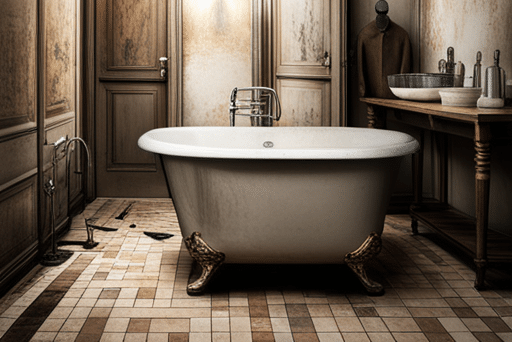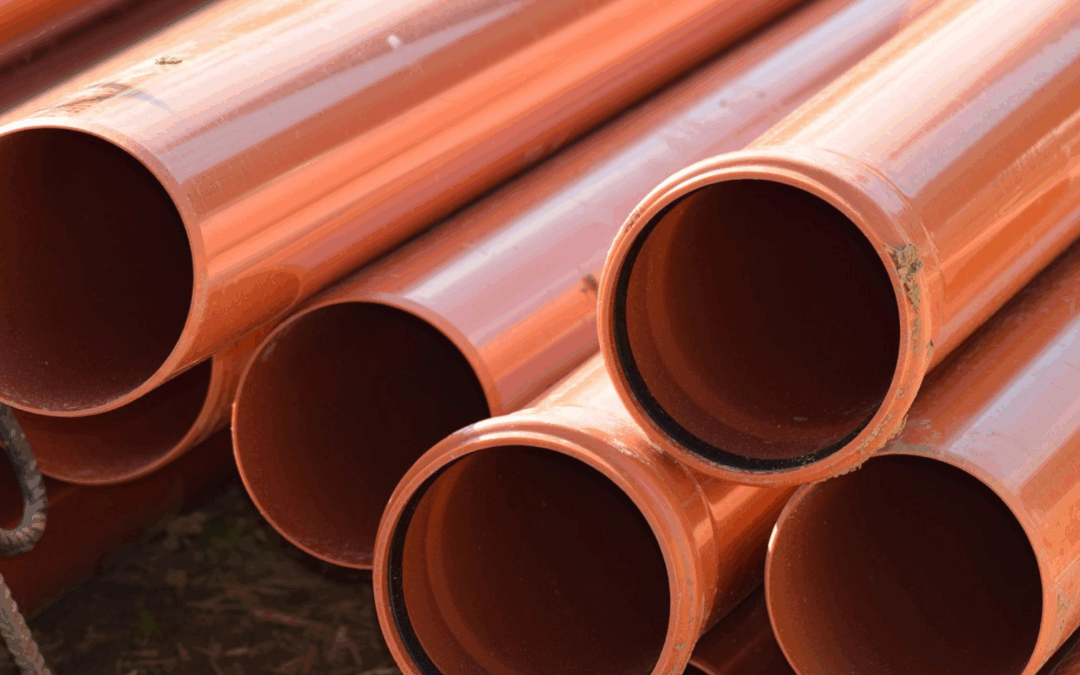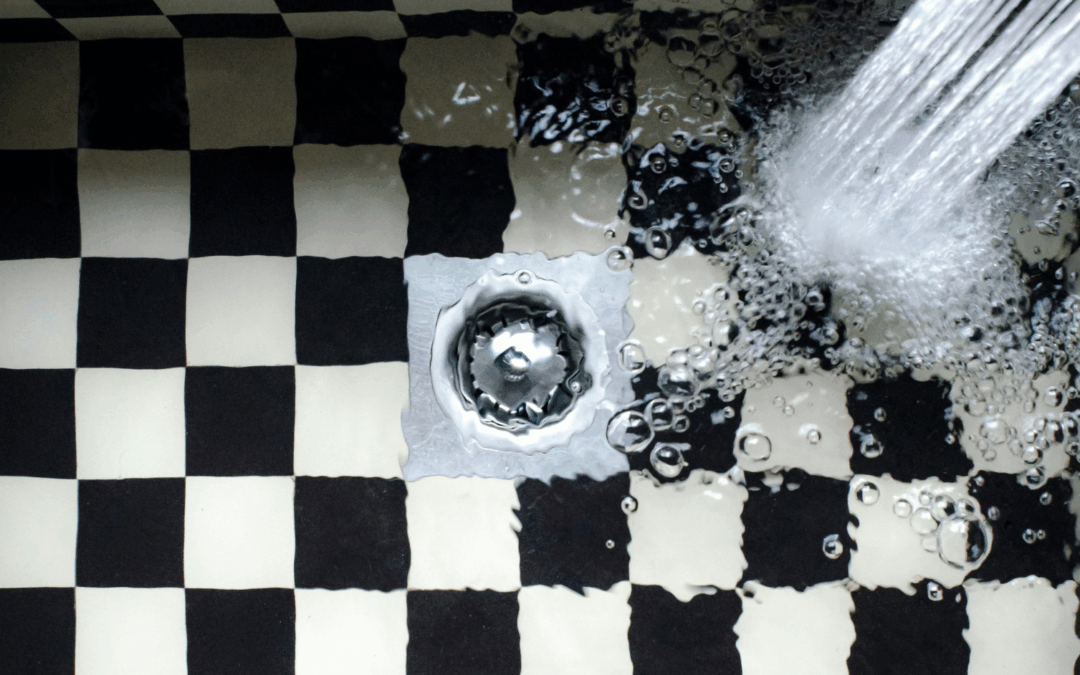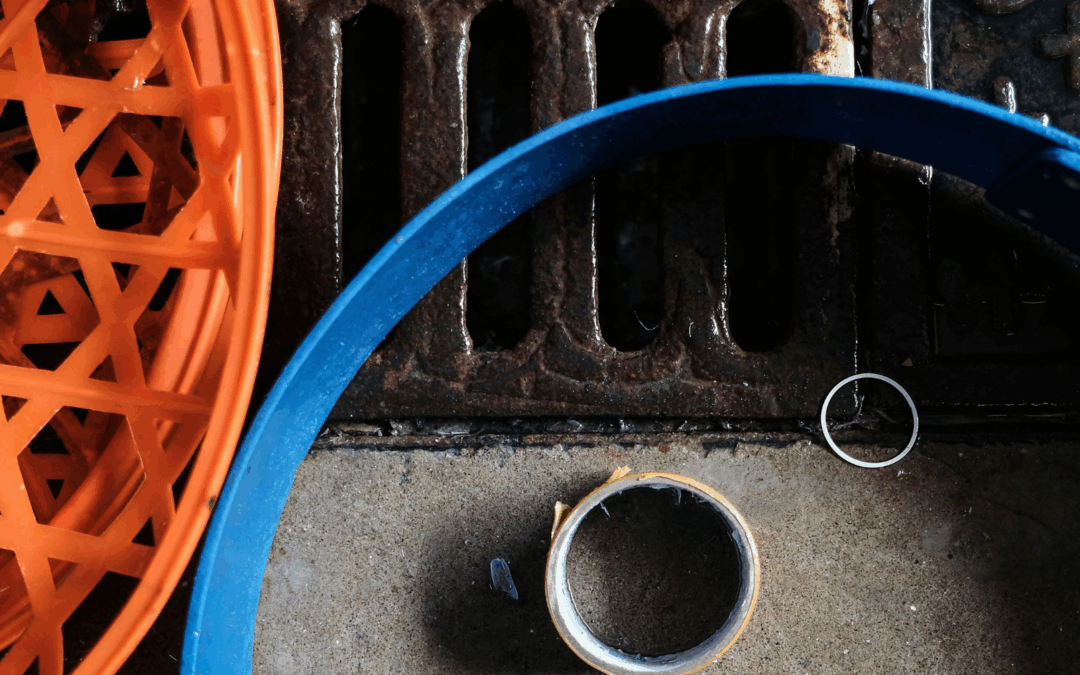Hard water stains can transform your sparkling bathroom surfaces into unsightly, cloudy messes that seem impossible to remove. These stubborn white marks appear on shower doors, faucets, and fixtures, leaving many homeowners frustrated and wondering how to restore their bathrooms to their former glory. The good news? With the right knowledge and techniques, you can eliminate even the most persistent hard water buildup and prevent it from returning.
This comprehensive guide will walk you through everything you need to know about hard water stains—from understanding what causes them to mastering proven removal techniques using common household items. Whether you’re dealing with light mineral deposits or years of calcium buildup, you’ll discover effective solutions that work without harsh chemicals or expensive products.
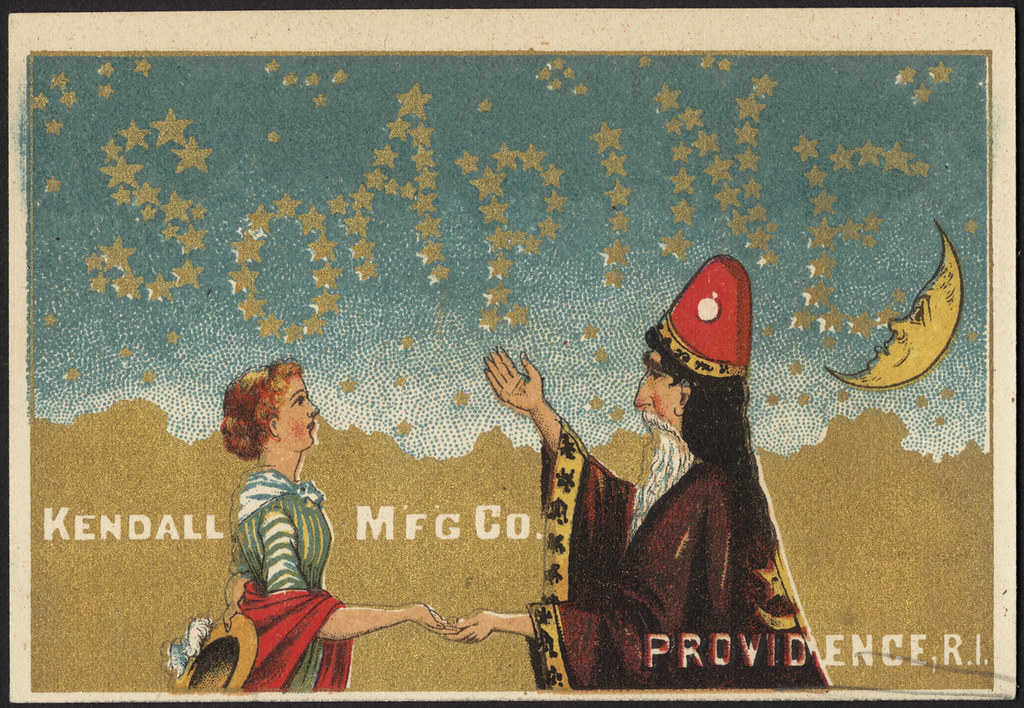
“Soapine, makes hard water soft! [front]” by Boston Public Library is licensed under CC BY 2.0
Understanding Hard Water and Its Effects on Your Home
Hard water contains high concentrations of dissolved minerals, primarily calcium and magnesium. When this mineral-rich water evaporates from surfaces, it leaves behind white, chalky deposits known as hard water stains. These calcium carbonate deposits accumulate over time, creating layers of mineral buildup that become increasingly difficult to remove.
Schedule Service Online
Get a free estimate so you know what you're signing up for
"*" indicates required fields
For Emergency Services Call: 410-255-9300
The severity of hard water stains depends on several factors, including your local water’s mineral content, how frequently surfaces are cleaned, and the amount of water exposure different areas receive. Bathroom surfaces like shower doors, faucets, and tile typically show the most dramatic effects because they’re constantly exposed to water that’s allowed to air dry.
Common Areas Where Hard Water Stains Appear
Hard water stains don’t discriminate—they’ll appear anywhere water regularly comes into contact with surfaces. Glass shower doors often bear the brunt of mineral deposits, developing a cloudy film that obscures transparency. Faucets and shower heads accumulate white, crusty buildup around their bases and spray holes. Bathroom tiles, especially natural stone varieties, can develop a dull, hazy appearance from repeated mineral exposure.
Beyond the bathroom, hard water affects other areas of your home as well. Kitchen sinks and faucets show similar staining patterns, while dishes and glassware may emerge from the dishwasher looking spotted and filmed. Even your laundry can suffer, with clothes feeling stiff and colors appearing dingy due to mineral deposits in the fabric fibers, even with laundry detergent.
Essential Supplies To Remove Hard Water Stains
Before tackling hard water stains, gather the right tools and materials to ensure effective results. Most effective cleaning solutions can be found right in your kitchen pantry, making this an affordable and eco-friendly approach to stain removal.
Natural Cleaning Agents
White vinegar serves as your primary weapon against mineral deposits. Its acetic acid content naturally dissolves calcium carbonate buildup without damaging most surfaces. Baking soda acts as a gentle abrasive that helps scrub away stubborn deposits while neutralizing odors and providing additional cleaning power.
For particularly tough stains, lemon juice offers similar acidic properties to vinegar with the added benefit of a fresh scent. Hot water enhances the effectiveness of all cleaning solutions by helping dissolve mineral deposits more quickly and thoroughly.
Tools and Materials
Paper towels or clean microfiber cloths help apply cleaning solutions and wipe away loosened deposits. A spray bottle allows for even distribution of liquid cleaners across large surfaces. For stubborn buildup, you’ll need a non-abrasive scrubbing pad or soft-bristled brush to gently work away deposits without scratching delicate surfaces.
Plastic wrap or aluminum foil can help keep cleaning solutions in contact with vertical surfaces longer, allowing more time for the acid to dissolve mineral buildup. A squeegee proves invaluable for removing cleaning solutions and preventing water spots on glass surfaces.
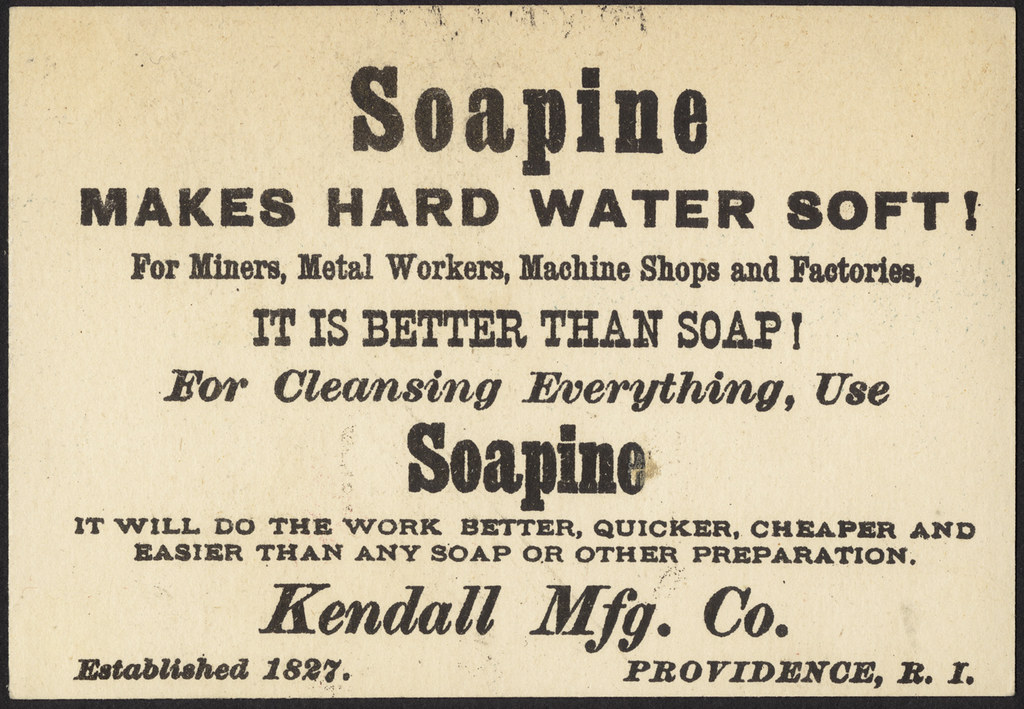
“Soapine, makes hard water soft! [back]” by Boston Public Library is licensed under CC BY 2.0
Proven Methods for Hard Water Stain Remover
The Vinegar Method
White vinegar stands as the most effective and widely available solution for hard water stain and soap scum removal. Create a cleaning solution by mixing equal parts white vinegar and hot water in a spray bottle. For lighter stains or to clean soap scum, this diluted solution often provides sufficient cleaning power while being gentle on surfaces.
For more stubborn deposits, use undiluted white vinegar. Spray the affected area thoroughly, ensuring complete coverage of all stained surfaces. Allow the vinegar to sit for 15-30 minutes, giving the acid time to dissolve the calcium deposits. The longer contact time allows the vinegar to penetrate deeper into layered buildup.
After the soaking period, scrub gently with a non-abrasive pad or soft brush. Focus on areas with heavy buildup, but avoid excessive pressure that could scratch delicate surfaces. Rinse thoroughly with hot water to remove loosened deposits and vinegar residue, then dry with a clean cloth to prevent new water spots from forming.
The Baking Soda Paste Technique
For areas with thick, stubborn mineral buildup, a baking soda paste provides additional scrubbing power while remaining gentle on surfaces. Mix baking soda with just enough water to create a thick paste that will stick to vertical surfaces.
Apply the paste generously to stained areas, ensuring good coverage of all mineral deposits. The mild abrasive action of baking soda helps break down stubborn calcium buildup while the alkaline nature neutralizes any remaining acid from previous cleaning attempts.
Let the paste sit for 15-20 minutes before scrubbing gently with a soft brush or cloth. The paste should help lift away loosened deposits while providing enough abrasive action to remove stubborn stains. Rinse thoroughly with hot water and dry completely to reveal clean, spot-free surfaces.
Combining Vinegar and Baking Soda
For the most challenging hard water stains, combine the power of both vinegar and baking soda in a two-step process. Start by applying baking soda paste to the affected area and letting it sit for 10-15 minutes. Then spray white vinegar over the baking soda, creating a fizzing reaction that helps break down mineral deposits.
The chemical reaction between the acid and base creates carbon dioxide bubbles that help lift deposits away from surfaces. Allow the mixture to bubble and work for several minutes before scrubbing gently and rinsing thoroughly. This combination method proves especially effective on shower doors and heavily stained fixtures.
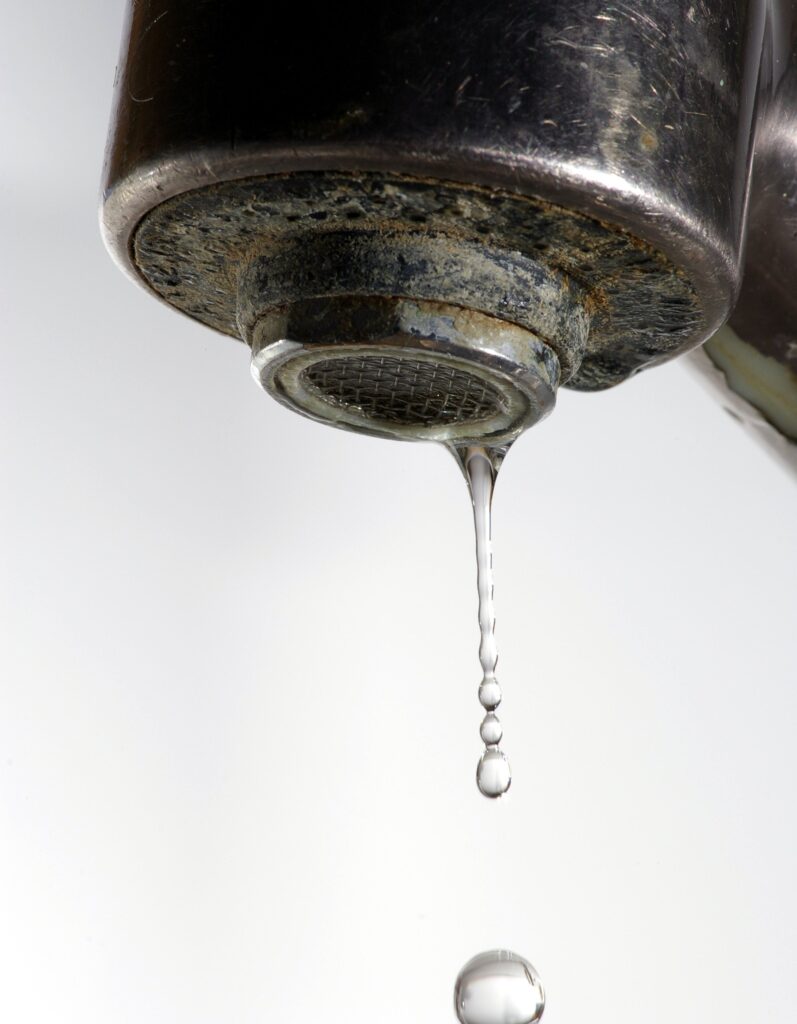
“Hard water and drop” by Hustvedt is licensed under CC BY-SA 3.0
Tackling Specific Problem Areas
Shower Doors and Glass Surfaces
Glass shower doors present unique challenges because mineral deposits can etch into the glass surface over time, creating permanent damage if not addressed promptly. Start with the vinegar method, but for best results on glass, heat the vinegar slightly before application—warm vinegar penetrates deposits more effectively than cold.
Apply the vinegar solution and cover with plastic wrap to prevent evaporation and maintain contact with the glass. This technique works particularly well on vertical surfaces where cleaning solutions tend to run off quickly. After 30 minutes, remove the plastic wrap and scrub with a non-abrasive pad, working in circular motions to avoid streaking.
For shower doors with heavy buildup, try the overnight method: apply undiluted vinegar, cover with plastic wrap, and let it work overnight. This extended contact time allows the acid to dissolve even the most stubborn calcium deposits. In the morning, scrub gently and rinse thoroughly before drying with a squeegee for streak-free results.
Faucets and Shower Heads
Faucets and shower heads require special attention because mineral deposits can clog spray holes and affect water flow. For removable shower heads, unscrew and soak overnight in a bowl of undiluted white vinegar. This thorough soaking dissolves deposits inside the shower head mechanism and clears blocked spray holes.
For fixed faucets and shower heads, fill a plastic bag with vinegar and secure it around the fixture with a rubber band, ensuring the aerator or shower head is completely submerged. Let it soak for several hours or overnight, then remove the bag and scrub away loosened deposits with an old toothbrush.
Pay special attention to aerators and spray holes, using a toothpick or small brush to clear any remaining blockages. This thorough cleaning restores proper water flow while eliminating unsightly mineral buildup around fixture bases.
Bathroom Tiles and Surfaces
Tile surfaces, particularly natural stone like marble or travertine, require gentler treatment to avoid damage from acidic cleaners. Test any cleaning solution in an inconspicuous area first to ensure it won’t damage or discolor the surface.
For ceramic and porcelain tiles, the standard vinegar method works well, but focus on grout lines where mineral deposits often accumulate. Use an old toothbrush to scrub grout thoroughly, as these porous areas trap deposits and can harbor bacteria if not properly cleaned.
Natural stone tiles may require specialized cleaners designed for stone surfaces, as vinegar can etch and damage these materials. Consult manufacturer recommendations or use pH-neutral stone cleaners to safely remove mineral deposits without causing permanent damage.
Advanced Techniques for Stubborn Stains
Heat-Enhanced or Hot Water Cleaning
Heat significantly improves the effectiveness of cleaning solutions by helping dissolve mineral deposits more quickly. Warm your vinegar solution before application, or run hot water over stained surfaces before applying cleaning products. The heat helps open pores in deposits and allows cleaners to penetrate more deeply.
For shower cleaning, turn on hot water for several minutes to steam up the enclosure before applying cleaning solutions. The humid environment helps soften mineral deposits and makes them easier to remove. This technique works particularly well for weekly maintenance cleaning.
Extended Contact Methods
Sometimes stubborn stains need extended exposure to cleaning solutions. Create cleaning “compresses” by soaking paper towels in undiluted vinegar and applying them to stained areas. Cover with plastic wrap to prevent evaporation and let the compress work for several hours.
This method works exceptionally well on faucet bases and other areas where spray application might not provide adequate coverage. The extended contact time allows the acid to dissolve thick layers of mineral buildup that resist shorter treatment periods.
Preventing Future Hard Water Stains and Mineral Build Up
Daily Maintenance Habits
Prevention proves far easier than removal when it comes to hard water stains. After each shower, squeegee glass doors and walls to remove water before it can evaporate and leave mineral deposits. This simple habit, taking less than a minute, dramatically reduces stain formation.
Keep a spray bottle of diluted vinegar solution (1:1 ratio with water) in your bathroom for quick daily touch-ups. A light spray and wipe-down of faucets and shower surfaces after use prevents mineral buildup before it becomes problematic.
Dry bathroom surfaces after use whenever possible. While not always practical for large shower enclosures, quickly wiping down faucets, mirrors, and countertops prevents water spots and mineral deposits from forming.
Weekly Cleaning Routine
Establish a weekly cleaning routine that addresses mineral buildup before it becomes stubborn. Spray all bathroom surfaces with your vinegar solution, let it sit for 10-15 minutes, then wipe clean. This regular maintenance prevents the heavy buildup that requires more intensive cleaning methods.
Pay special attention to areas that see constant water exposure, such as shower door tracks and faucet bases. These areas benefit from weekly deep cleaning to prevent mineral accumulation in hard-to-reach spaces.
Long-Term Solutions
Consider installing a water softener system if hard water problems persist throughout your home. Water softeners remove calcium and magnesium from your water supply, preventing mineral deposits from forming in the first place. While this requires an initial investment, it protects all your plumbing fixtures and appliances while making cleaning much easier.
For targeted protection, consider applying commercial glass protectants to shower doors after thorough cleaning. These products create a barrier that helps water sheet off glass surfaces rather than beading and leaving mineral deposits.
Products for Removing Hard Water Stains
When it comes to tackling hard water stains, choosing the right product can make all the difference. Here are 7 top-rated products and their respective brands to help you achieve sparkling clean surfaces:
- Bar Keepers Friend Cleanser
A trusted name for tough stains, Bar Keepers Friend Cleanser effectively removes hard water stains, rust, and mineral deposits from a variety of surfaces. - Lime-A-Way
This powerful cleaner is specifically formulated to dissolve lime, calcium, and rust stains, making it an excellent choice for bathroom fixtures and kitchen appliances. - CLR Calcium, Lime, & Rust Remover
A versatile solution, CLR works quickly to eliminate hard water stains, scaling, and buildup on surfaces like glass, tile, and metal. - Bio-Clean Hard Water Stain Remover
Known for its eco-friendly formula, Bio-Clean safely removes hard water stains and buildup without harsh chemicals, making it an ideal option for environmentally conscious homeowners. - Weiman Hard Water Stain Remover
Designed with convenience in mind, Weiman’s solution is perfect for cleaning glass shower doors, mirrors, and chrome fixtures, leaving surfaces spotless and streak-free. - Bring It On Cleaner
Featuring a unique oxygen bleach formula, Bring It On Cleaner effectively removes hard water stains while also polishing surfaces to restore their shine. - Zep Calcium, Lime, & Rust Remover
Zep’s industrial-strength cleaner is highly effective against tough stains caused by hard water and leaves sinks, faucets, and other surfaces clean and free of buildup.
Each of these products offers unique benefits, so selecting the right one will depend on the type of surface you’re cleaning and your personal preferences. Always follow the manufacturer’s instructions for optimal results.

When to Call Professional Help From MD Sewer and Plumbing
While most hard water stains respond well to DIY removal methods, some situations warrant professional intervention. If mineral deposits have etched into glass surfaces, creating permanent clouding or pitting, professional restoration from MD Sewer and Plumbing may be the only option to restore clarity.
Severe mineral buildup in plumbing fixtures might indicate broader plumbing issues that require professional assessment. If your efforts to clean shower heads and faucets don’t restore proper water flow, internal mineral buildup might require professional cleaning or replacement.
Additionally, if you’re dealing with extensive hard water damage throughout your home, consulting with plumbing professionals like MD Sewer and Plumbing can help identify the source of the problem and recommend comprehensive solutions like whole-house water treatment systems.
Restore Your Bathroom’s Sparkle
Hard water stains don’t have to be a permanent fixture in your home. With the right techniques and consistent maintenance, you can keep your bathroom surfaces sparkling clean and free from unsightly mineral deposits. Remember that regular maintenance prevents the heavy buildup that makes cleaning difficult and time-consuming.
Start implementing these proven techniques today, beginning with the simple vinegar method on your most problematic areas. As you develop a routine that works for your specific situation, you’ll find that maintaining clean, spot-free surfaces becomes much more manageable.
If you discover that hard water stains are symptomatic of larger plumbing issues in your home, don’t hesitate to consult with experienced professionals who can assess your system and recommend appropriate solutions. Taking action now will save you time, effort, and potentially costly repairs down the road.

